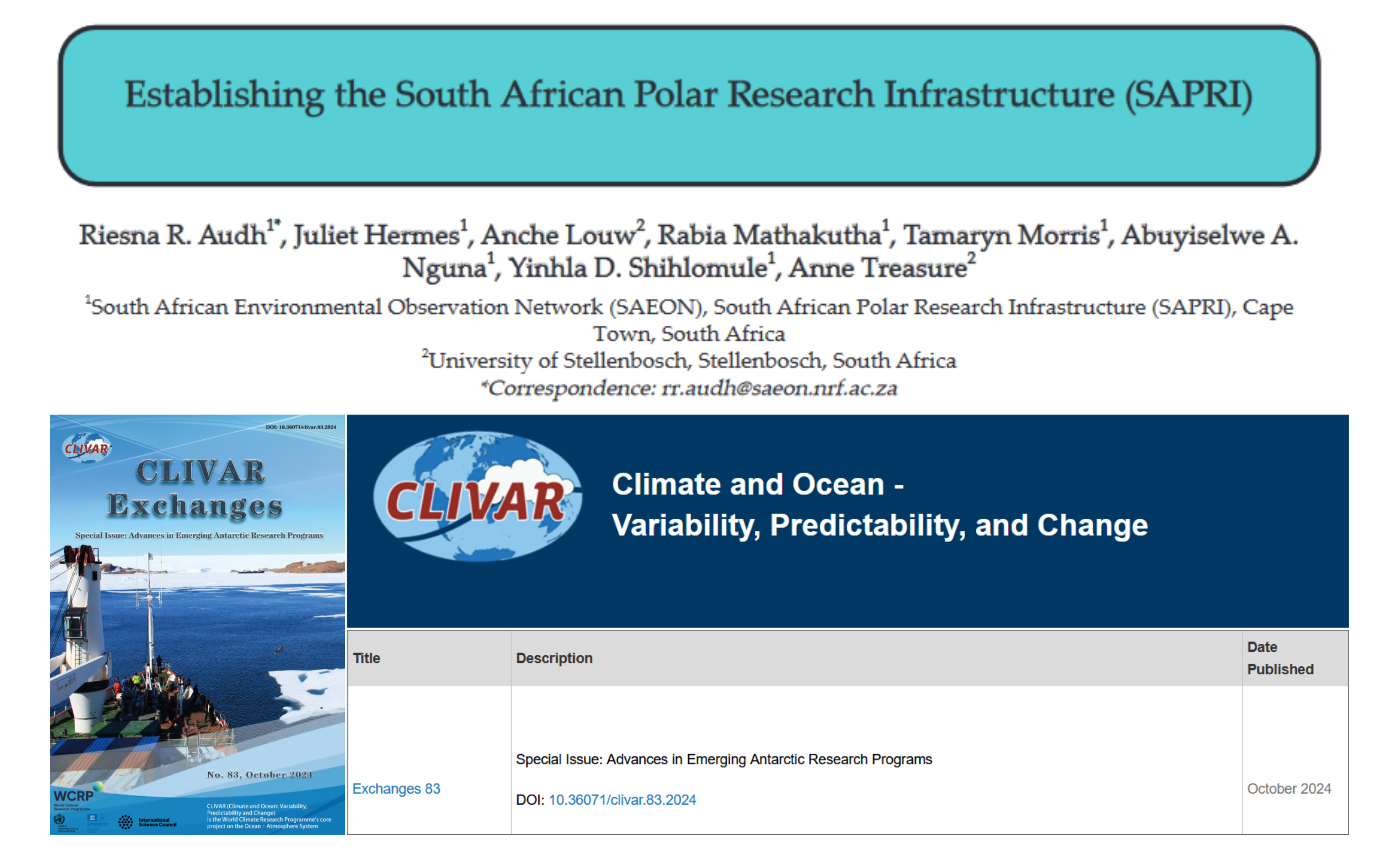As we reflect on the achievements of 2024, the South African Polar Research Infrastructure (SAPRI) had the honour of contributing to a global dialogue by providing a South African perspective on the strategic objectives and challenges of establishing the SAPRI programme. This contribution was featured in a CLIVAR Exchanges 83 special SORP issue titled Advances in Emerging Antarctic Research Programs (DOI: 10.36071/clivar.83.2024), with an article titled Establishing the South African Polar Research Infrastructure (SAPRI).
Co-authored by the SAPRI team, the article was led by Riesna R. Audh. Audh et al. (2024) highlight SAPRI’s significance as a central initiative motivated by South Africa’s unique geographical position, which serves as a critical gateway for Antarctic and marine research. SAPRI aims to coordinate and enhance South African marine and polar research while supporting government strategies for Antarctica and the sub-Antarctic islands south of the country.
The article provides an overview of:
- SAPRI’s role as one of 13 large Research Infrastructures (RIs) established by the Department of Science, Technology, and Innovation (DSTI) under the South African Research Infrastructure Roadmap (SARIR);
- The organisational structure, including SAPRI’s Integrated Facilities and consortium partners;
- The challenges associated with establishing a research infrastructure of this scale; and
- SAPRI’s vision and strategic direction moving forward.
Acknowledgements
The authors would like to acknowledge funding from the DSTI SARIR programme and from NRF-SAEON. The Department of Forestry, Fishers and the Environment (DFFE) provides support and access to the S.A. Agulhas II and the research stations on Marion Island, Gough Island and Antarctica (SANAE IV). The authors would also like to acknowledge and thank the marine and polar community and stakeholders who were integral in the development and establishment of SAPRI. This paper is dedicated to Dr Precious Thembumuzi Mahlalela (SAPRI LTO-Ocean Research Coordinator, 2023).
Rabia Mathakutha, South African Polar Research Infrastructure, 18 December 2024




